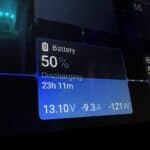
MENUMENU
TALK TO AN EXPERT
Special Hours: 7AM – 6PM PST
TALK TO AN EXPERT
Special Hours: 7AM – 6PM PST
The best marine battery for you depends on what type of boating you plan to do. Do you head out for the day to pull your kids on water skis? Are you trolling for trophy fish from sunrise until sunset? Or, perhaps your boat is your home. All of these applications put different demands on your boat battery. Let’s look at how this impacts your choice of the best boat battery for you and what options are available.
Your car battery’s job is to provide enough power to turn over, or start, your engine when it is cold. To do this, the battery needs to deliver a lot of amperage for just a few seconds. After the engine starts, the alternator takes over to power all of the electronics in your car and recharge the battery.
Boat batteries often have different demands on them. Your boat motor still needs a battery to start it, but there may be many other power needs that the battery will supply. In smaller, day-use boats, your marine battery must also power the lights, gauges, pumps, and other electronics. On the other hand, fishing boats and live-aboard vessels may require multiple battery types to run household systems or electric motors.
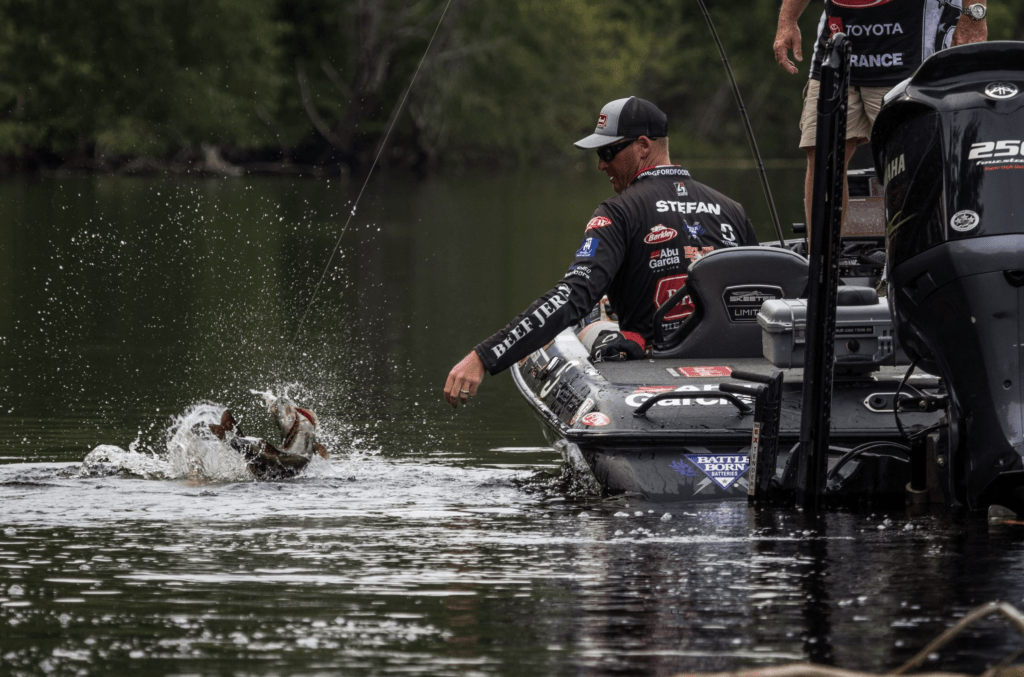
There are three general types of marine batteries to consider: Starting boat batteries, deep-cycle marine batteries, and multi-purpose boat batteries.
Starting boat batteries are similar to the starting battery in your car. They provide a short burst of power (cranking amps) to start your boat motor. Draining them below 50% causes damage to them and shortens their lifespan.
Deep-cycle marine batteries can be drained slowly over long periods. Depending on the type of deep-cycle battery, you can repeatedly drain them to 80% or more of their capacity without causing damage. This is called “deep cycling.” However, deep-cycle batteries cannot provide the cranking amps needed to start large motors.
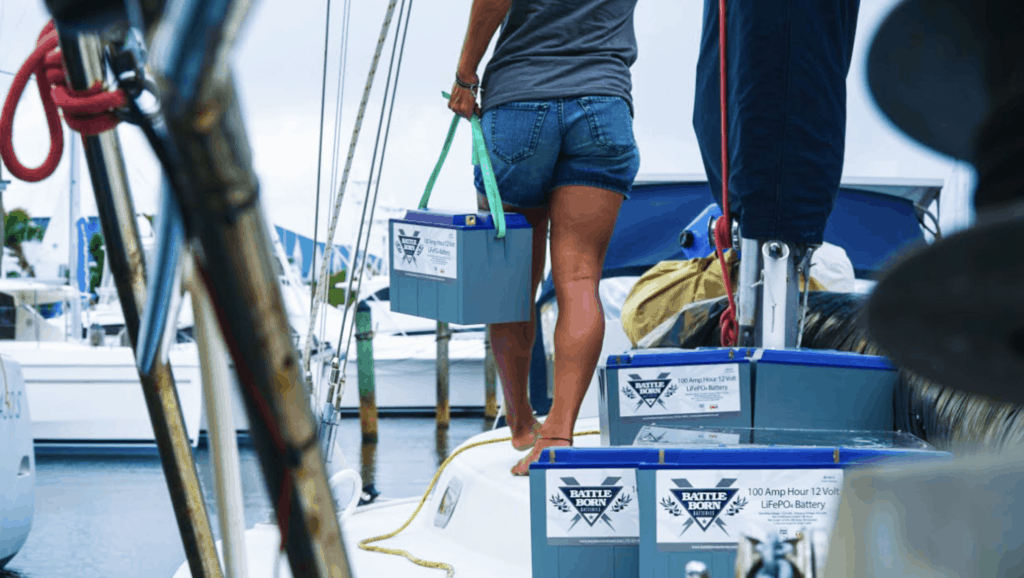
Multi-purpose boat batteries combine some of the benefits of a starting battery with a deep-cycle battery. The construction of the multi-purpose battery allows it to start small boat motors while also powering lights and gauges that don’t draw a lot of power.
There are typically three types of boat power and battery systems to consider when selecting the best boat battery.
The simplest system is the single multi-purpose battery bank. Multi-purpose battery systems are common in day-use boats, like speed boats or for general recreation. The battery’s main purpose is to start the motor and maybe power your radio or running lights if it gets dark on you. The sustained power draw on the battery is very low, and you typically wouldn’t be draining it enough to cause damage. Accidently leaving lights on or running the radio too long could damage the battery however and leave you stranded, unable to start your engine.
Dedicated fishing boats with a trolling motor require a starting battery and a deep-cycle trolling marine battery bank. Trying to power a trolling motor all day on a starting or multi-purpose battery would not work. Not only would the battery drain quickly, deep cycling a starting or multi-purpose battery damages the battery. This could also leave you stranded because your trolling motor could kill the starting battery.
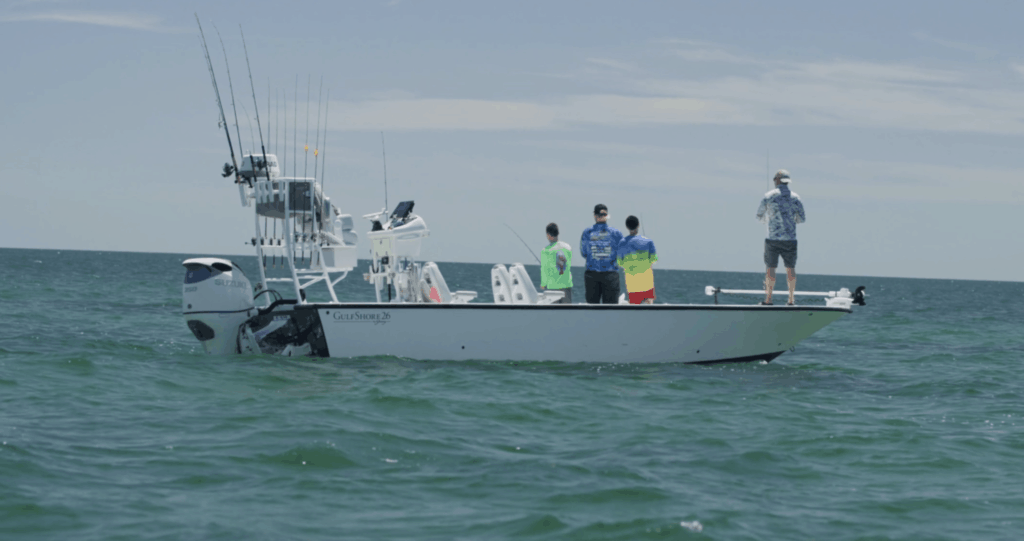
Live-aboard vessels such as houseboats, sailboats, and catamarans also require multiple battery types. Like most boats, they need a starting battery to start the motor.
Unlike recreational boats and fishing boats, live-aboard boats need battery systems to provide power to all of the electronics and appliances that you need for daily living. This includes lights, fans, DC appliance power and possibly inverters. In many ways, a houseboat system battery bank is no different than a battery system for an off-grid home or an RV.
Your application will determine if you need a starting battery, a deep-cycle battery system, or maybe you only need a single multi-purpose battery. The best boat battery for you will always depend on how you’re using it. Regardless of your application, there are some things to keep in mind when looking for any marine battery.
Efficiency is critical. Efficiency in a battery means that you can discharge your battery to 80% or more of its capacity without damaging it and then recharge it quickly.
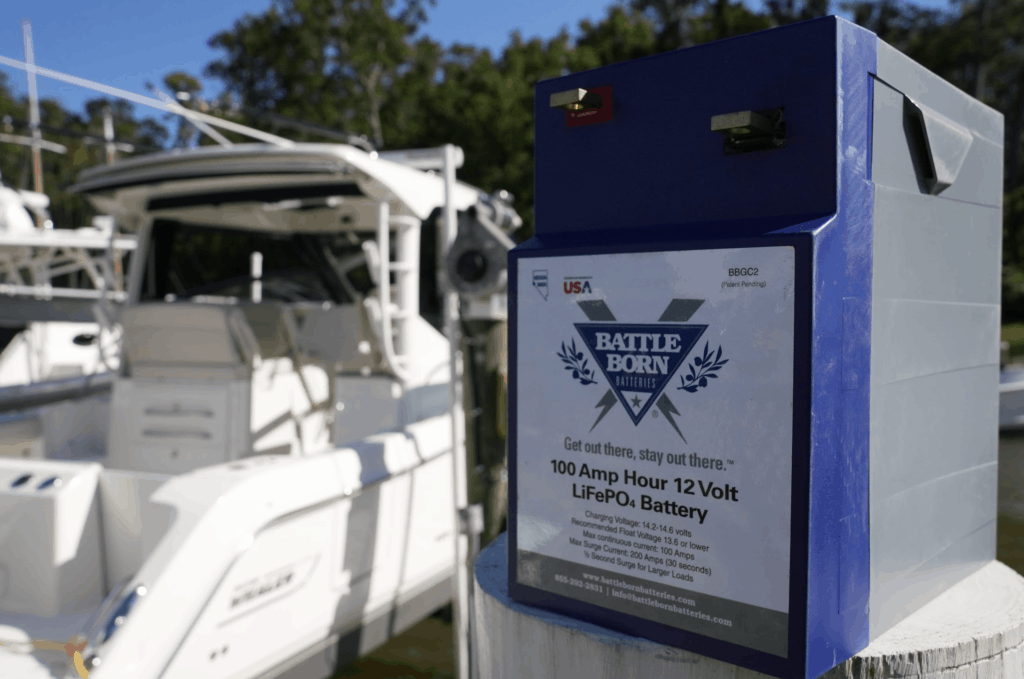
Reliability and lifespan are also essential to consider when selecting your marine battery. You don’t want to be a few miles off-shore on a fishing trip and not be able to start up your motor to get home because your battery died. Likewise, imagine taking your friends out on your sailboat for a weekend and having your battery system croak on you. That’s not going to make for a fun vacation. Beyond that, batteries are expensive. Having to replace them frequently because they don’t have a long lifespan or warranty will add up quickly.
And last, but certainly not least, weight. Batteries can be very heavy. This starts to become a significant consideration in live-aboard and trolling battery systems where you likely need multiple batteries to provide the capacity you need.
Ultimately, you’re looking for the lightest, most efficient, and reliable battery you can afford. Let’s look at some options.
Lead-acid deep-cycle marine batteries come in two main varieties: flooded lead-acid (FLA) and absorbent glass mat (AGM).
Flooded lead-acid batteries are the most basic type of lead-acid battery. They contain a sulfuric acid solution with lead plates suspended in it. You need to monitor them continually and periodically add water to the batteries to keep them operating correctly.
Absorbent glass mat batteries are also sometimes referred to as sealed lead-acid batteries. As this name implies, the batteries are sealed and don’t require the same maintenance as FLA batteries. AGM batteries also have lead plates in them, but they sit between electrolyte saturated fiberglass sheets.
Lead-acid batteries are the most common and readily available type of deep-cycle battery. Since they are readily available, it’s usually pretty easy to find a replacement if you need one. They also have the lowest upfront cost, which can be enticing to those on a budget.
Lead-acid batteries do not have any electronics in them, which allows them to provide a large amount of current. This makes them a good option for starting batteries.
Lead-acid batteries have a few major drawbacks. The first is that they require more maintenance than other deep-cycle batteries to ensure they remain in peak working condition. While AGM batteries don’t need the same maintenance as FLA batteries, they cost significantly more without adding any additional capacity.
Deep-cycle lead-acid batteries should not be discharged below 50% of their capacity. Doing so will damage them. Additionally, as lead-acid batteries discharge, their voltage also drops. Combining these two factors means that you typically only get about half of the rated capacity out of a lead-acid battery.
While deep-cycle lead-acid batteries have the lowest initial cost, they also have the shortest lifespan, lasting only 2-5 years. Because of the lead plates, lead-acid batteries are very heavy, which is not ideal for boating applications where weight is a vital concern. Lastly, FLA batteries are not sealed, so you must install them upright to prevent the acid solution from leaking.
Lithium-ion deep-cycle batteries use lithium salt to store energy instead of sulfuric acid and lead plates. They are relatively new and are still the most expensive type of deep-cycle battery. However, their high upfront cost is often justified by their many advantages, especially in boating applications.
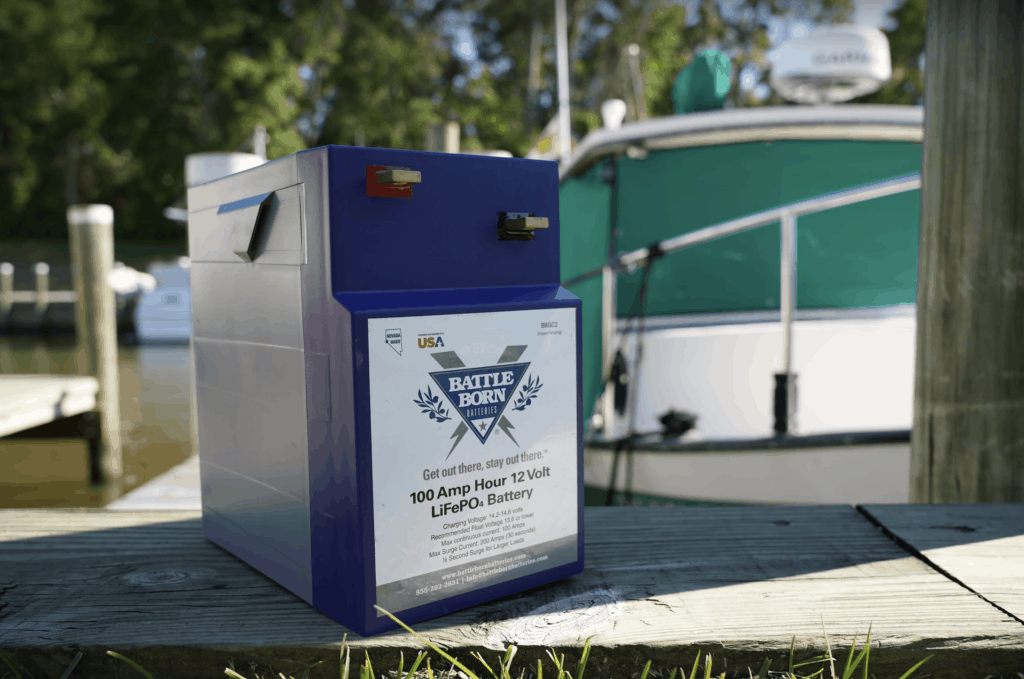
You can drain lithium-ion deep-cycle marine batteries to 80% or more of their capacity without damaging them. Additionally, with the proper charge controller, they charge much faster than lead-acid batteries. This combination makes lithium marine batteries much more efficient than their lead-acid counterparts.
Lithium-ion batteries have an integrated battery management system (BMS) that monitors the battery’s health and eliminates the need for periodic maintenance. The BMS also optimizes charging and discharging across the battery’s cells and ensures the battery is always operating within its safe limits. These features result in the lifespan of a lithium battery being 2-5 times that of a lead-acid battery.
Lithium-ion deep-cycle batteries don’t contain heavy lead plates and weigh about half what lead-acid batteries of the same capacity do. As we mentioned earlier, this is a massive advantage in a boat where every pound counts.
The biggest disadvantage of lithium-ion marine batteries is their initial upfront cost. However, you often end up saving money in the long run since they usually last at least five times longer than traditional lead-acid batteries.
One other thing to consider is that the maximum amperage output of lithium-ion batteries is much less than lead-acid batteries. This means that lithium-ion batteries are not a good option for a starting battery where you need high cranking amps.
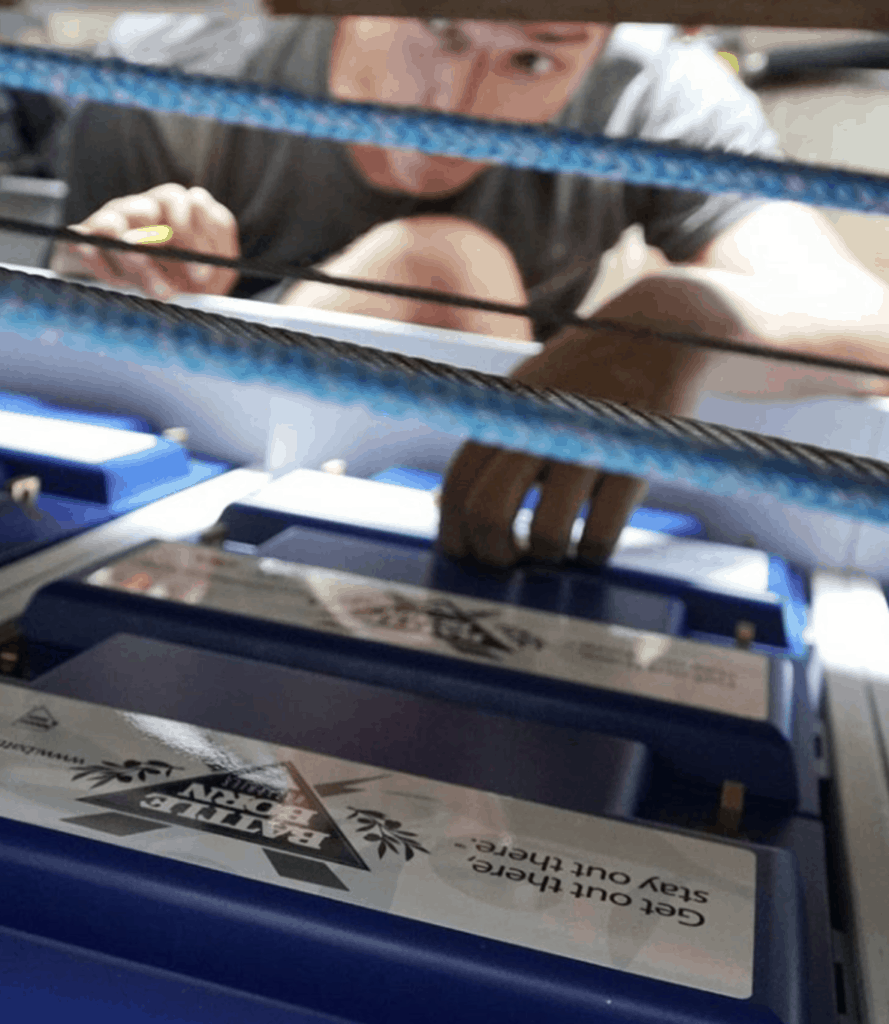
Your particular application will determine which type of boat battery is best for you. However, a lithium-ion marine battery will be your best option for any application where deep cycling is required. The only time a lithium-ion boat battery won’t outperform a lead-acid battery in efficiency, reliability, overall cost, and weight is when you need a starting battery.
So, whether you’re heading out on the water for a fun day of cruising around the lake, trolling for a trophy fish, or living on your houseboat, choosing the best battery for your use is critical. Unfortunately, there isn’t one battery to rule them all. Understanding your application and the benefits of the different options allows you to choose the best marine battery for you.
We know that building or upgrading an electrical system can be overwhelming, so we’re here to help. Our Reno, Nevada-based sales and customer service team is standing by at (855) 292-2831 to take your questions!
Also, join us on Facebook, Instagram, and YouTube to learn more about how lithium battery systems can power your lifestyle, see how others have built their systems, and gain the confidence to get out there and stay out there.
Shop Best Sellers








Ask a technical specialist now at 855.292.2831
Stay in the Know
9 thoughts on “What Is the Best Boat Battery? Guide to Deep Cycle Marine Batteries”
I just purchased a Minn Kotta Ultrex 112 lb thrust trolling motor for the bow of my boat. My boat is a pacific northwest style fishing boat which means there is not much room for 3 batteries for the 36 volt required to operate the motor. I will also have a Hummingbird Helix 12 fish finder attached to it on the bow. I was told by a boat mechanic that I needed at least a 105-115 Ah battery to run the motor. he told me to avoid a Li battery. I do not have room for 3 lead acid batteries and want to know if you have one 36V 105-115Ah battery?
Hi Franklin, thanks for reaching out. At this time we do not have any batteries with those specific specs at this time. You can check out our store here: https://battlebornbatteries.com/product-category/all-batteries/lifepo4-batteries/
I have a 24 volt trolling motor with a 80 lb thrust I know I room in the bow of boat what size batteries do in need are agm good thanks J Haskell what brand is better
Hi John, thanks for reaching out. In regards to your questions from both your comments, we offer a 24V trolling motor bundle that can help with your system. Our batteries utilize lithium iron phosphate batteries, known as LiFePO4 technology. If you are looking for additional information regarding your boat and system specs, you can give our sales and tech team a call at 855-292-2831 and they would be more than happy to assist. Thank you!
24 volt trolling motor 80lb thrust need 2 batteries what kind is best with out braking the bank I hear AGM are good thanks J Haskell
I’m buying an 80# thrust trolling motor for my boat. 2 AGM wired in series for a 24v system is the standard setup. Could I use one 24v 100ah Lithium battery and get comparable run times?
Hi Thomas, you can wire two batteries in series to create a 24V 100ah lithium battery system. Our batteries have been proven to get anglers out on the water all day. You can read more about how our batteries work with trolling motor here: https://battlebornbatteries.com/lithium-trolling-motor-battery/
Wow, I never knew how a boat could use more than one battery to work efficiently! Recently, my uncle said he’d like to buy a boat, and it looks like he found a great deal! My uncle says he wants to purchase that boat and invest in a new battery, so I think your article could come in handy! Thanks for the information on boat batteries and their different features!
Thanks for the reminder that the lifespan of marine batteries. I’d like to find a good one soon because I will be doing a lot of boating in the summer. I’d like to get some upgrades beforehand.